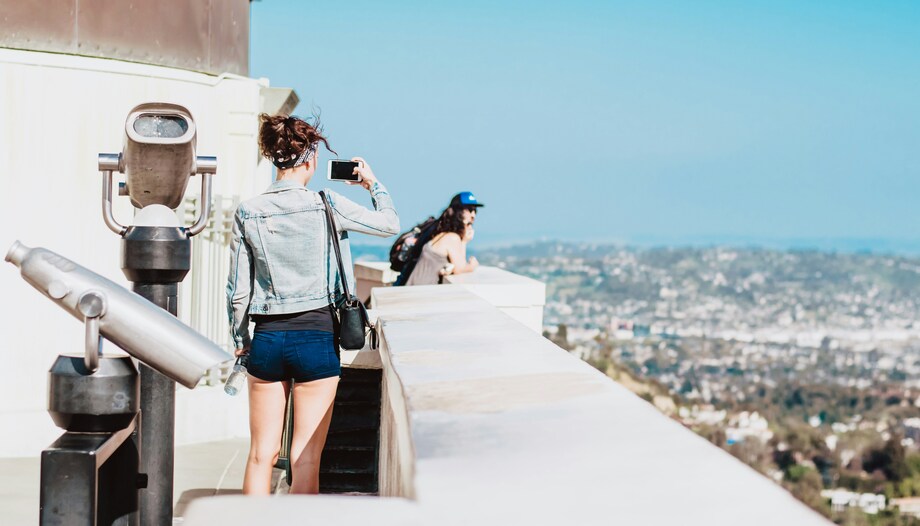Tourismphobia is a trend that I know well because I am lucky enough to live in one of the world's most fashionable tourist destinations: Malaga. My city keeps appearing in the rankings of the most desired places to visit. Its pleasant climate, its wide cultural and museum offer, the beauty of its streets, beaches and natural landscapes, the friendliness of its people (forgive the immodesty), and its unique gastronomy have made it an enviable place where everyone wants to come to live or at least spend a few days.
The benefits of this trend for the people of Malaga are unquestionable, as the income from tourism benefits everyone, but there are also many drawbacks that we have to suffer: young people have to look for a house outside the city because they cannot access the real estate market, rising prices of basic products, overcrowding of streets and public spaces, disappearance of traditional commerce...
Tourism overcrowding and tourism phobia
Tourist overcrowding has the paradoxical power to transform unique spaces, and therefore admired, in common and hateful. A Malaga without muscatel, espetos and pescaíto, because what tourists like are hamburgers and imported beer, would not be the city that inspired Picasso; and a Malaga with beaches, museums and bars crowded to the point of not finding room, would not be the City of Paradise that the Nobel Vicente Aleixandre sang about; and a Malaga without Malagueños, would not be the city that Antonio Banderas takes for idem. The same could be said of other cities such as Venice, Rome, Athens or Cancun. Finding the right balance is difficult and it is up to the institutions to get down to work so as not to kill the goose that lays the golden eggs.
However, today I would like to reflect on another no less important perspective for finding solutions to the problem of tourismphobia, and that is the way we behave when we go sightseeing. I remember with great affection Ana, a saintly woman of my family. parish that, during pilgrimages, she would not allow the service staff to make her room in the hotels where we stayed for several nights. She said that the bed was the first thing she had made every morning since she was a little girl and that, because she was away from home, she was not going to stop doing it. "This way, besides," she would tell me with the shining eyes of someone preparing a surprise, "I'll give the girl a treat when she comes into my room."
His attitude helped me to understand that tourists should be aware that the places they pass through are not their home. But not, as many do, to be uninhibited and behave as they would not do at home; but to be extremely respectful and careful, as when you are a guest in a strange home. Because one leaves the next day and if I have seen you I do not remember, but the people who work there and those who live in that city, deserve my consideration and thanks for their hospitality.
The essence of tourism
Without going to the extreme of Ana, whose attitude could put a lot of people out of work if it spreads, we should review what tourism means to us: is it a superficial experience that consists only of seeing new things and indulging our senses without caring about who is around us or, on the contrary, do we seek to admire beauty, enrich our spirit and meet people from other places?
In this regard, the recent message from the Holy See on the occasion of the World Tourism Day advocated placing the culture of encounters at the center of tourism activity, so strongly defended by Pope Francis "the encounter," says the text, "is an instrument of dialogue and mutual knowledge; it is a source of respect and recognition of the dignity of the other; it is an indispensable premise for building lasting bonds".
Tourists or pilgrims?
We must seek to encounter others because we are pilgrims in a world in which countries are ever closer, but people are ever farther apart. For this reason, Pope Francis recently invited young people not to be mere tourists, but pilgrims. "May your journey," he told them, "not be simply a passing through the places of life in a superficial way: without capturing the beauty of what you encounter, without discovering the meaning of the roads you travel, capturing brief moments, fleeting experiences to preserve them in a selfie. The tourist does this. The pilgrim, on the other hand, immerses himself fully in the places he finds, makes them speak, makes them part of his search for happiness".
That is the key, not to lose sight, at home and abroad, that we are pilgrims and we are just passing through. So "¡Buen camino!
Journalist. Graduate in Communication Sciences and Bachelor in Religious Sciences. He works in the Diocesan Delegation of Media in Malaga. His numerous "threads" on Twitter about faith and daily life have a great popularity.








